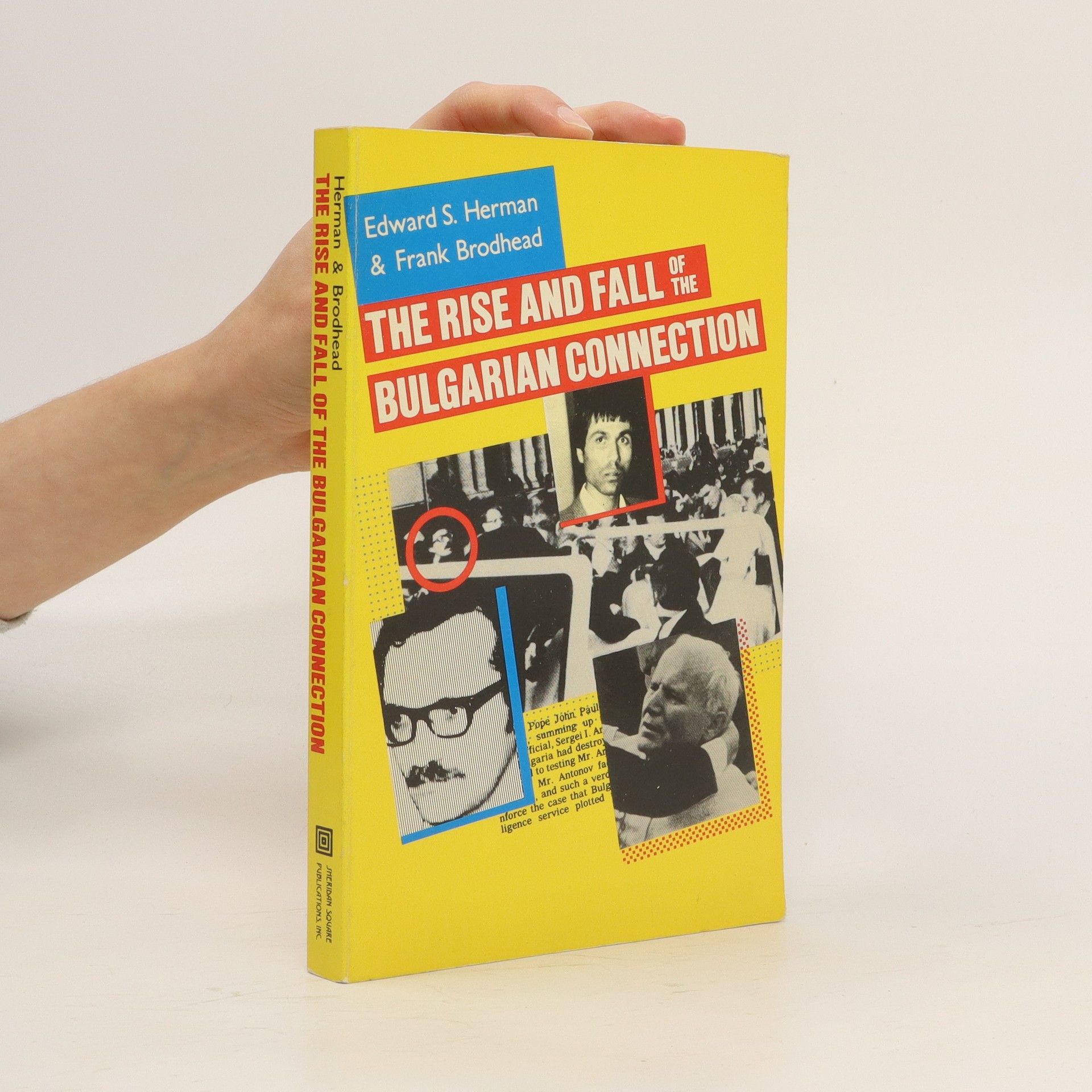La fabbrica del consenso ovvero la politica dei mass media
- 501pagine
- 18 ore di lettura
Edward S. Herman è stato un economista e analista dei media il cui lavoro ha esaminato criticamente l'intersezione tra potere aziendale, questioni normative ed economia politica con le pratiche mediatiche. Ha approfondito come le strutture mediatiche influenzino il discorso pubblico e plasmino le percezioni della realtà, rivelando spesso pregiudizi sistemici nella diffusione delle notizie. La sua rigorosa analisi ha fornito spunti essenziali sul funzionamento dei sistemi mediatici e sul loro profondo impatto sulla comprensione sociale. L'eredità di Herman risiede nella sua acuta critica al ruolo dei media nel perpetuare ideologie dominanti.





This work presents a compelling critique of the news media's role in obscuring errors and deceptions, rooted in the economics of publishing, by renowned scholars Edward S. Herman and Noam Chomsky. They argue that, contrary to the perception of the media as diligent seekers of truth, the actual practice often serves the interests of privileged groups that dominate society and the global order. Through various case studies, including the media's biased treatment of “worthy” versus “unworthy” victims and the portrayal of Third World elections, Herman and Chomsky develop a Propaganda Model to explain media behavior. Their updated introduction revisits the Propaganda Model and earlier case studies, examining the media's coverage of the North American Free Trade Agreement and the 1994-1995 Mexican financial crisis, as well as protests against the World Trade Organization and the regulation of the chemical industry. The analysis reveals a stark portrayal of U.S. mass media as propagandistic, highlighting their failure to fulfill their self-proclaimed role as essential information providers. This work invites readers to understand the media's function in a fundamentally new light.
The Myth of the Liberal Media contends that the mainstream media are parts of a market system and that their performance is shaped primarily by proprietor/owner and advertiser interests. Using a propaganda model, it is argued that the commercial media protect and propagandize for the corporate system. Case studies of major media institutions―the New York Times , the Wall Street Journal , the Philadelphia Inquirer ―are supplemented by detailed analyses of "word tricks and propaganda" and the media's treatment of topics such as Third World elections, the Persian Gulf War, the North American Free Trade Agreement, the fall of Suharto, and corporate junk science.
Az Egyetértés-gépezet tanulságos, felkavaró és ellentmondásos médiaelméleti fejtegetés köszönhetően annak, hogy a nem is olyan távoli múlt becstelenségei, amelyeket feltár, a jelen visszásságairól is árulkodnak.Tanulságos, mert részletesen bemutatja, hogy olykor milyen cinikusan részrehajló az újságírás még a szabadnak tekintett nyugati tömegmédiában is, s hogy az ösztönös propagandakövetés és elfogult meggyőződésesség egyáltalán nem ritka a vezető lapok újságírói között. Felkavaró, különösen az 1980-as években Latin-Amerikában (Guatemala, El Salvador) zajlott események kapcsán, amelyek bemutatásakor a kötetből világossá válik az Egyesült Államok néhány tekintélyes médiuma esetenként milyen mély és cinkos hallgatásba burkolózott, s milyen morális engedményeket tett jó néhány igazán elvetemült és embertelen cselekedet (módszeres és rendszeres kínzások, megerőszakolások, politikai gyilkosságok) vonatkozásában. S roppant ellentmondásos, hogy mindez a sajtószabadság és a tényfeltáró újságírás hazájában történt, az emberi jogok és méltóság védelmezőjének, a hidegháborús keleti blokk zsarnokságával szembeni morális felsőbbrendűség legfőbb szószólója, az Egyesült Államok sajtójának a részéről. Nyugtalanító élmény Herman és Chomsky könyve olvastán más színben látni az etalont. (Pólya Tamás)